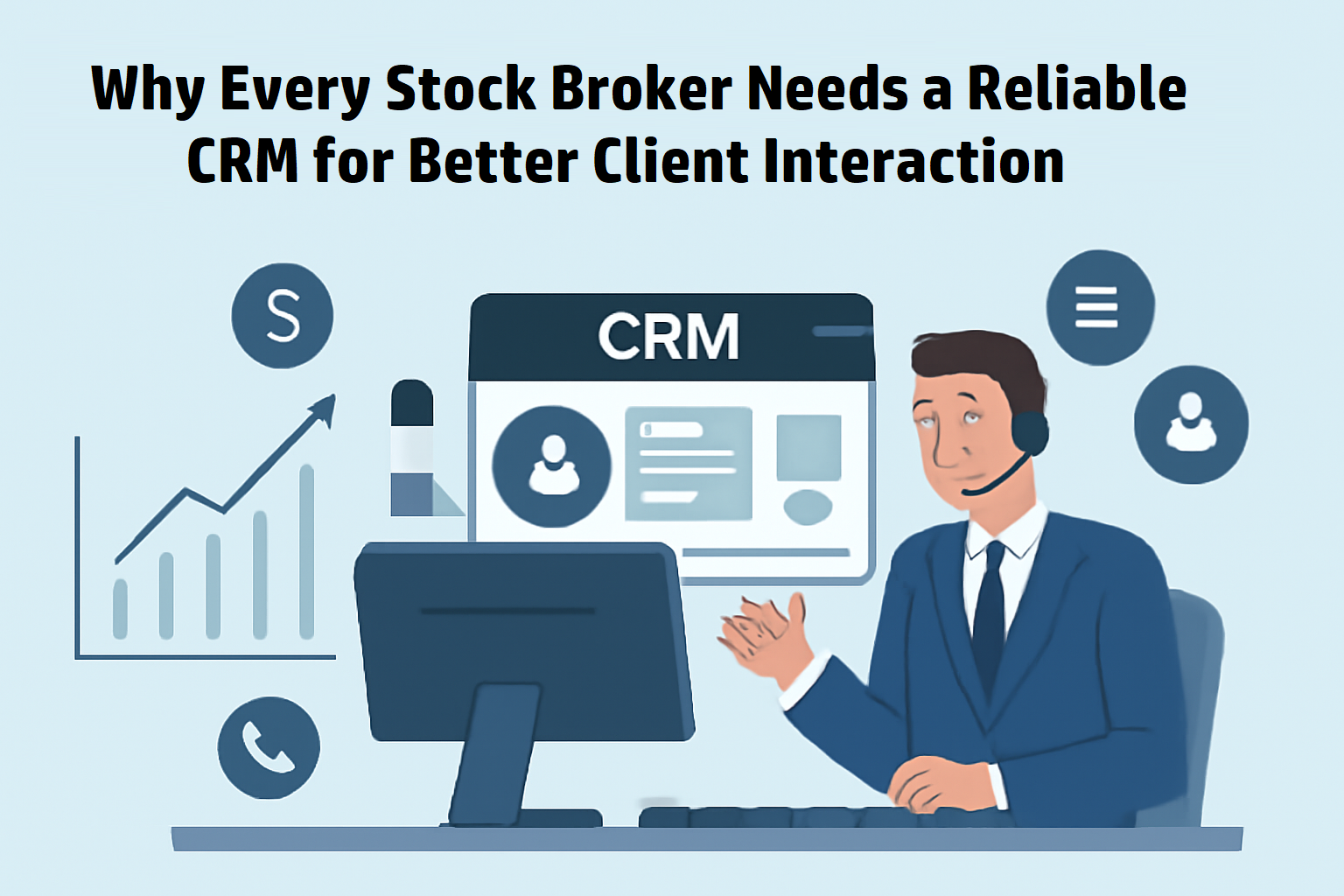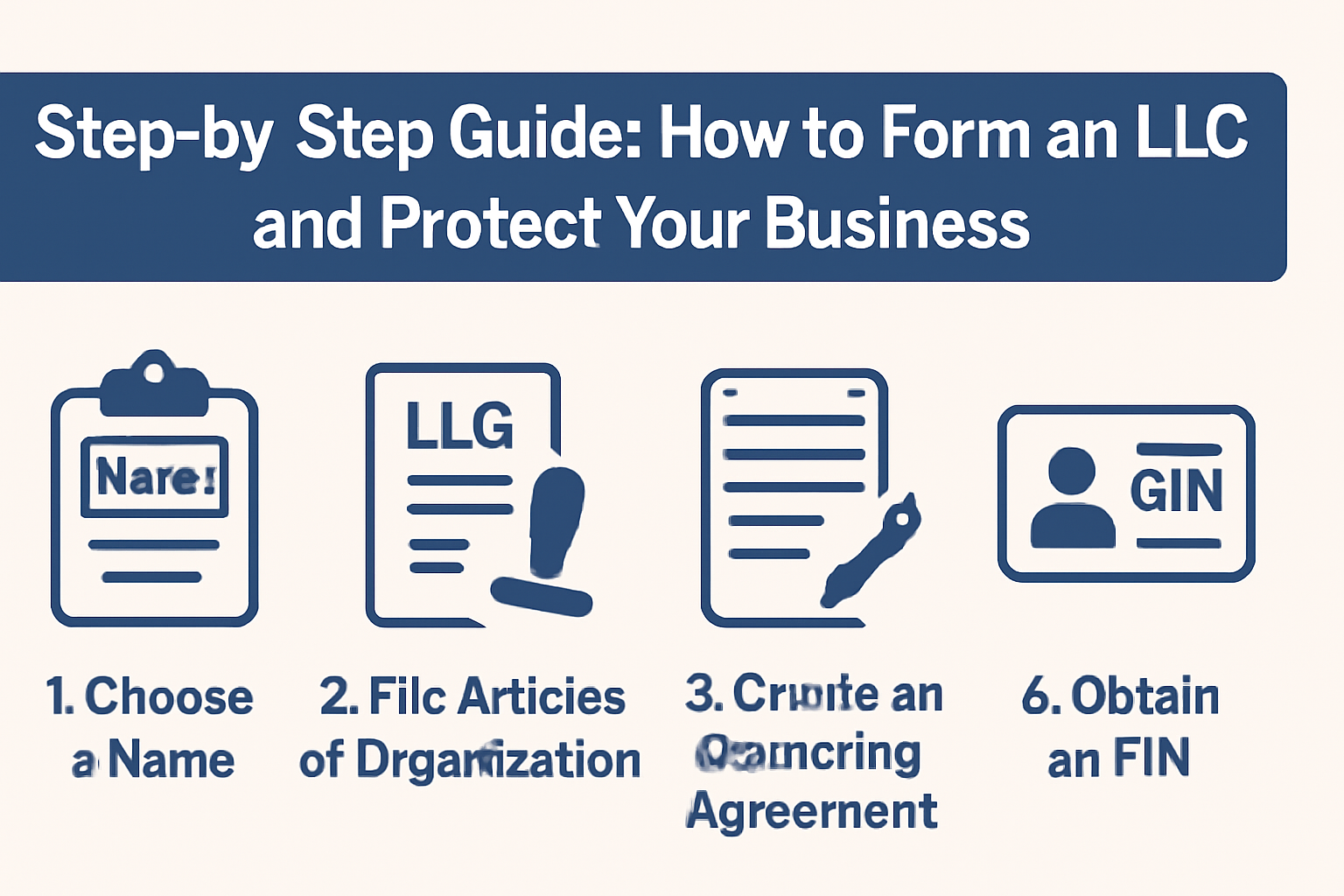Why Every Stock Broker Needs a Reliable CRM for Better Client Interaction

In the fast-paced world of stock brokerage, managing client relationships effectively is paramount to building a successful business. As a stock broker, the relationships you cultivate with your clients are crucial for ensuring their satisfaction, loyalty, and ultimately, your business’s growth. However, this is not always an easy task, especially when juggling multiple clients and complex transactions. This is where a reliable Customer Relationship Management (CRM) system comes into play. A good CRM system streamlines processes, enhances communication, and enables brokers to provide personalized services to their clients, thereby improving client interaction and fostering long-term relationships.
A CRM system is more than just a tool for managing client data. It serves as a hub for all interactions with clients, offering a comprehensive view of client history, preferences, and needs. This information can be used to create tailored strategies, predict client behavior, and optimize customer engagement. Moreover, a CRM helps brokers keep track of appointments, deadlines, and communications, ensuring that no detail is overlooked. With so much information stored in one place, a CRM system also minimizes the risk of errors and miscommunications, which can be detrimental to a broker’s reputation.
Improved Communication and Client Engagement
Effective communication lies at the heart of any successful client relationship. For stock brokers, staying in constant touch with clients, offering timely updates, and responding to inquiries promptly are all essential aspects of building trust. A CRM system ensures that brokers never miss a beat when it comes to client communication.
By keeping all client interactions organized and easily accessible, a CRM allows brokers to respond quickly to client inquiries. Whether it’s a phone call, email, or in-person meeting, brokers can access detailed information about each client’s portfolio, preferences, and past interactions, enabling them to offer tailored advice. This personalized communication fosters a sense of trust, as clients feel understood and valued. Furthermore, the automation features of many CRM systems allow brokers to set reminders and automate follow-up emails or alerts, ensuring that clients are consistently engaged and updated about their investments.
Stock Broker CRM is designed to help brokers manage this complex communication process efficiently. It provides the ability to send personalized messages, track client interactions, and automate routine tasks. This enables brokers to focus on higher-value activities, such as offering strategic advice or discussing market opportunities with clients. By automating repetitive tasks, brokers can allocate more time to understanding their clients’ needs and providing solutions that truly add value.
In addition to streamlining communication, a CRM system offers valuable insights into client behavior. For example, by analyzing previous interactions, brokers can identify patterns in client preferences, such as preferred communication channels or the types of investments they are most interested in. With this knowledge, brokers can proactively offer relevant advice and services that align with their clients’ goals. This level of insight leads to a more personalized experience, which in turn strengthens client loyalty and satisfaction.
Efficient Time Management and Task Organization
Time management is another area where a CRM system can make a significant impact. Stock brokers often juggle multiple clients, transactions, and deadlines, and it can be challenging to stay organized. A reliable CRM system allows brokers to prioritize tasks, track deadlines, and manage appointments, all in one platform.
With features like task management, calendar integration, and client segmentation, brokers can ensure that they stay on top of important tasks without getting overwhelmed. For instance, brokers can set reminders for follow-up calls, portfolio reviews, or meetings with clients. They can also categorize clients based on various factors, such as investment type, risk tolerance, or portfolio size, to ensure that each client receives the appropriate level of attention.
Furthermore, CRMs allow brokers to delegate tasks and collaborate with team members. In larger brokerage firms, this is especially important, as it enables different team members to stay aligned on client needs and progress. A CRM ensures that everyone involved in managing a client relationship has access to the same up-to-date information, improving overall efficiency and reducing the likelihood of errors or missed opportunities.
Better Client Retention and Satisfaction
Client retention is one of the most important aspects of running a successful brokerage business. Happy clients are more likely to remain loyal, make additional investments, and refer new clients. A CRM system plays a crucial role in improving client retention by enabling brokers to deliver exceptional service at every touchpoint.
With a CRM, brokers can track important milestones in a client’s journey, such as when they first signed up, when their portfolio was last reviewed, or when they made a significant investment. By staying on top of these key moments, brokers can reach out to clients proactively, offering insights, advice, or just a simple check-in to see how things are going. This personalized attention shows clients that their broker genuinely cares about their financial well-being, rather than just focusing on transactions.
Moreover, CRMs often come equipped with client feedback features that allow brokers to gather valuable insights into client satisfaction. By collecting and analyzing feedback, brokers can identify areas for improvement and make changes that will enhance the client experience. Whether it’s improving the user interface of a mobile app, offering new investment products, or providing more frequent updates, acting on client feedback is a powerful way to build loyalty and improve retention rates.
Enhanced Security and Data Protection
In the world of stock brokerage, client data is extremely sensitive and must be protected at all costs. A reliable CRM system offers enhanced security features that help safeguard client information, such as encryption, two-factor authentication, and secure data storage. By using a CRM system with robust security measures, brokers can reassure clients that their personal and financial data is safe from cyber threats and unauthorized access.
Furthermore, a CRM ensures that client data is always up to date and accessible only to authorized personnel. This level of control and protection is crucial in maintaining client trust and complying with industry regulations. By using a secure CRM system, brokers not only protect their clients but also minimize the risk of legal or financial repercussions due to data breaches or mishandling of sensitive information.
Scalability and Growth
As your business grows, managing client relationships becomes even more challenging. A CRM system can scale alongside your brokerage, accommodating an increasing number of clients and transactions. Whether you are a solo broker or part of a large team, a CRM can adapt to your needs, ensuring that you continue to provide exceptional service even as your client base expands.
For brokers looking to grow their businesses, a CRM provides valuable insights into areas for improvement and opportunities for expansion. By analyzing client data, brokers can identify trends, such as which services are most popular or which types of clients are most profitable. This information can guide business development strategies and help brokers target new markets or refine their offerings.
Conclusion
In conclusion, a reliable CRM system is essential for stock brokers who want to enhance their client interactions, improve communication, and ensure long-term business growth. From streamlining communication and improving time management to ensuring client retention and safeguarding sensitive data, a CRM system empowers brokers to deliver exceptional service and build stronger, more personalized relationships with their clients.
By adopting a CRM, stock brokers can not only stay organized and efficient but also offer a more tailored and proactive approach to client service. In a competitive and fast-paced industry, having a reliable CRM system is no longer a luxury but a necessity. If you’re a stock broker looking to take your client relationships to the next level, it’s time to consider the many benefits of a robust CRM system.
For more information on how a Stock Broker CRM can enhance your business, visit https://brokeret.com/forex-crm.



